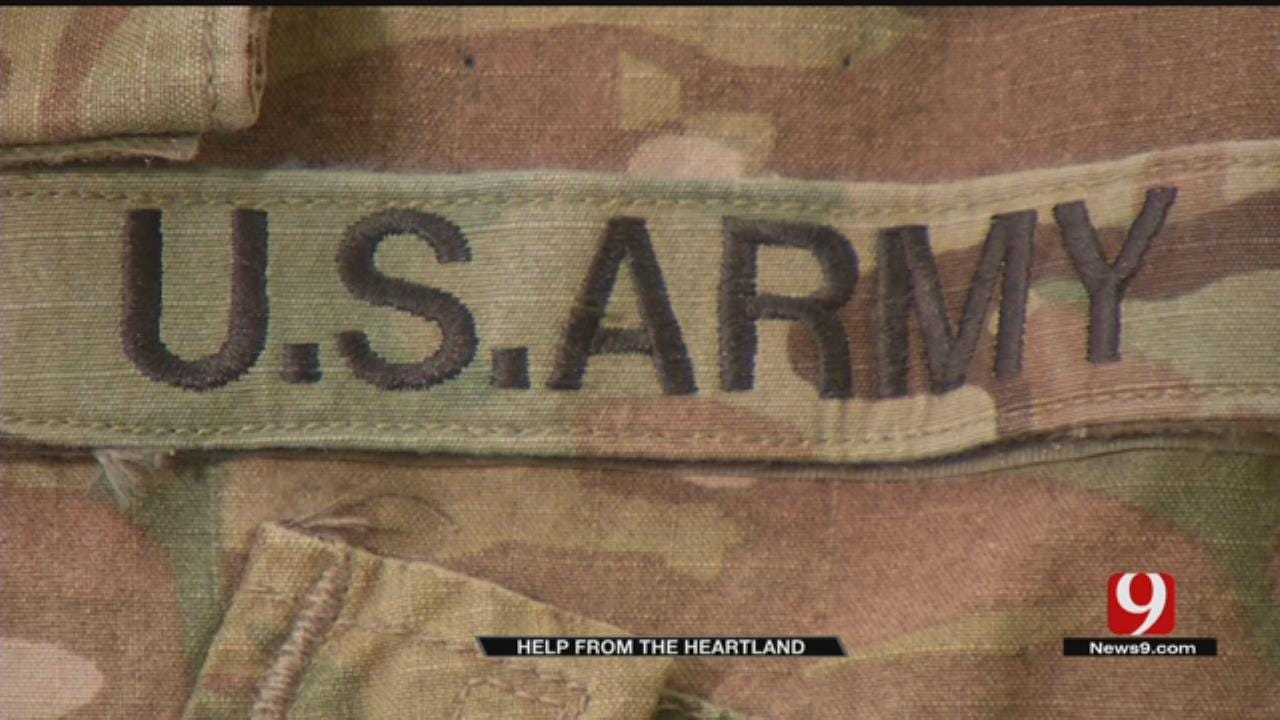Help From The Heartland: Central City/Home Away From Home
<p>About 250 members of the Oklahoma National Guard have been in Ukraine since mid-January, and most still have about another three months before they come home. </p>Wednesday, April 12th 2017, 10:55 pm
About 250 members of the Oklahoma National Guard have been in Ukraine since mid-January, and most still have about another three months before they come home.
This latest deployment of the 45th Infantry Brigade Combat Team was necessitated by the Pentagon's commitment, in the wake of Russia's 2014 annexation of Crimea, to a multinational effort to train Ukrainian soldiers. The training began in 2015, first targeting Ukrainian National Guard members and then, starting in 2016, battalions of the country's regular army.
On the American side, the training was being done by active duty soldiers stationed in Europe, but leadership determined it would be better to have some help.
"And so we were in what was called the available year ... and we had trained up, and the 45th was selected for this mission, I think, partly because we were in the available year and partly because the 45th has such a great reputation," explained Lt. Col. Scott Holt, deputy commander of the 45th IBCT.
That reputation and the 45th's expertise in the field has been hard-earned.
In the global War on Terror following 9/11, the 45th was deployed to Saudi Arabia and Kuwait (2003), Afghanistan three times (2003, 2006, 2011), and Iraq (2007). Now, it's Ukraine where the mission is to make the Ukrainian army NATO inter-operable by 2020.
"(The) 45th soldiers always respond, and they've done an amazing job of helping the Ukrainians further their ambitions along," Holt said.
The majority of the training is taking place here in this far western corner of Ukraine, just miles from the border with Poland.
First transformed into a base for military training by the dying Austro-Hungarian Empire at the end of World War I, the facilities are now collectively known as the International Peacekeeping and Security Center (IPSC).
In the heart of the IPSC is a small campus known as Central City -- this is the mission's administrative home and also where the soldiers live.
And there's no more common gathering place in Central City than the Di-Fac, the dining facility.
"Yeah, a fed army's a happy army," noted Spc. Austin Vogt, a member of the 1-179th's Echo Company.
Vogt works eight hours a day at the American Di-Fac (chow halls for the Canadians and Ukrainians sit right next door), helping with food prep, making sure Ukrainian cooks practice proper hygiene, and perhaps most important, seeing that his Oklahoma brothers and sisters get an occasional break from standard Ukraine fare.
"We're bringing in tacos, Parmesan-crusted chicken, fried chicken, burgers," Vogt said, with a touch of pride. "Yeah, the American cuisine -- it's definitely a morale booster for everyone."
Morale boosts are also available to those who enjoy working out. There are two gyms on the grounds, including a cross-fit gym with equipment brought specially from Oklahoma.
Religion plays a major role in the lives of most Ukrainians. Drive through even the smallest towns and you'll see ornate, beautifully maintained churches. There are no church buildings in Central City, but that hasn't stopped soldiers from worshiping.
"I'm a Protestant chaplain," explained Capt. Josh Byrd. "So, basically, I just hold non-denominational services."
Byrd has turned a classroom in one of the administrative buildings into a makeshift chapel. In addition to worship services, he holds regular bible studies and, as a licensed counselor, also helps soldiers work through difficult issues.
"Soldiers that are dealing with family issues, relationship problems, problems communicating back home," Byrd said, "or maybe they're underemployed back home...or they just need to learn how to budget money."
Byrd said many soldiers are just dealing with general stress from the deployment, and he also tries to help with that.
The living quarters in Central City are no-frills -- from standard barracks, to what are known as 'bergs'.
"They're also known as chu's -- containerized housing units," said Sgt. Anthony Jones, a member of the 45th's public affairs team.
Jones and his roommates have tried to make their "chu" a bit more homey, with family photos and colorful furnishings, like Jones' orange Oklahoma State blanket that hangs by his bed.
"I bleed orange, like through and through," Jones stated. "I went to college there, and now I work there."
For now, of course, they all work here, and as far as out-of-town accommodations go, Oklahoma Guard members say Central City is "all right."
"We've got good food, we've got a roof over our heads every day," said 1st Lt. John Riley of Bravo Company. "I think we've got it good."
More Like This
April 12th, 2017
March 22nd, 2024
March 14th, 2024
February 9th, 2024
Top Headlines
May 1st, 2024
May 1st, 2024
May 1st, 2024











